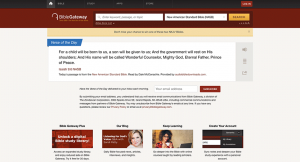Even though I asked you (in my last post) to begin researching the people of Acts 17, I’ve decided to postpone the next part of our study of the Bereans. That’s because of what happened to me as I began looking at the apostle Paul. For this post, then, let’s take a few moments to discuss research.
Knowing that I would be writing a new blog post about the people of Acts 17, and planning to focus on the apostle Paul, I took a trip to my local library to begin researching. When I arrived, I found three books that I checked out. I returned all three early, having read only portions of them.
Why? Because they weren’t what I had hoped for, and they were of no real help to me. One author is Karen Armstrong, a former nun whose books have been translated into 45 languages, and another is A.N. Wilson, a celebrated British biographer. Both Armstrong’s and Wilson’s books dismiss the book of Acts as historically unreliable, and both reconstruct Paul’s life according to their individual notions.
Researching as Part of Bible Study
And this brings us to a problem unique to researching the Bible and its context. Many of the “experts” simply don’t believe in God or in the validity of the Bible. In fact, some of these unbelieving theologians and historians are intent on discrediting the Bible, and they pursue their agenda armed with extensive knowledge.
So what do you do when you’re confronted with a bewildering array of resources about a biblical subject? Determining where to begin your research, and how to select your sources, is a challenge in any in-depth Bible study. Here are some considerations that will help you narrow the selection.
Your Goals for Researching
The first consideration is an evaluation of your research and Bible study goals. I’ll use myself as an example here. My desire is to post articles on my blog at least twice a month, which means I have a limited amount of time to read about Paul before writing about him.
But time is not the only factor here. I must also think about what aspects of Paul’s life are relevant to the chapter we’re studying. In this case, launching into comprehensive research regarding Paul is actually counter-productive because it can derail the Bible study itself. It’s important to find the right balance. (This past week, I lost that balance.)
Beginners or anyone pressed for time might want to start slowly. Restrict your efforts at researching people to what you can find in a Bible dictionary or Bible encyclopedia. Those resources will give you a great overview, and I always like to begin there. If you have more time, though, I encourage you to explore other resources. So how do you find credible resources?
Finding Credible Resources
Just as vital as determining your study goals is learning how to find Bible study reference materials that will enhance your study rather than waste your time and annoy you in the process. Asking people you trust to make recommendations is one of the best ways to find good products and services of any type. You might do that to find a good auto mechanic or dentist, and the same can be said for Bible study resources.
But what if your circle of close friends, or people who attend church with you, don’t know of a good book about Paul, or whatever you’re studying? What next?
Look at the Bibliograhy!
Take a look at the bibliography of a source you trust. I don’t agree with every word in Zondervan’s Pictorial Encyclopedia of the Bible or the Expositor’s Bible Commentary. However, I know that conservative scholars who believe in God and in the validity of the Bible produced these resources. Both contain bibliographies. Many of the books listed will be the works of other conservative scholars worth consideration.
If I have the time, I try to glance at these bibliographies. As a result, I’ve become familiar with the names of conservative scholars, particularly those who have been influential. (They seem to be listed everywhere.) If you make a practice of this, you’ll also get to know those names.
Unfortunately, I didn’t heed my own advice this week. I got into a rush, so I felt compelled to check out what was available rather than evaluate these sources. And that’s how I ended up with a book about Paul written by a former nun turned mystic who is more interested in the elements common to all world religions than in biblical truth!
Next week we’ll resume our study of Acts 17 and the Bereans. I plan to start with a look at the apostle Paul. In the meantime, tell me about how you find biblical study resources.




